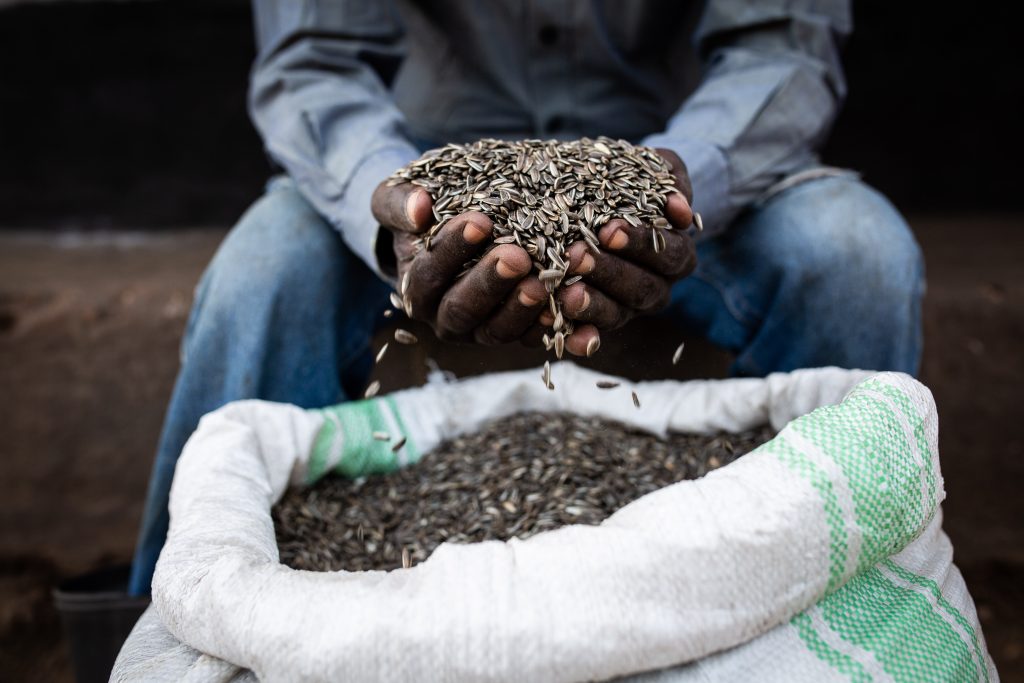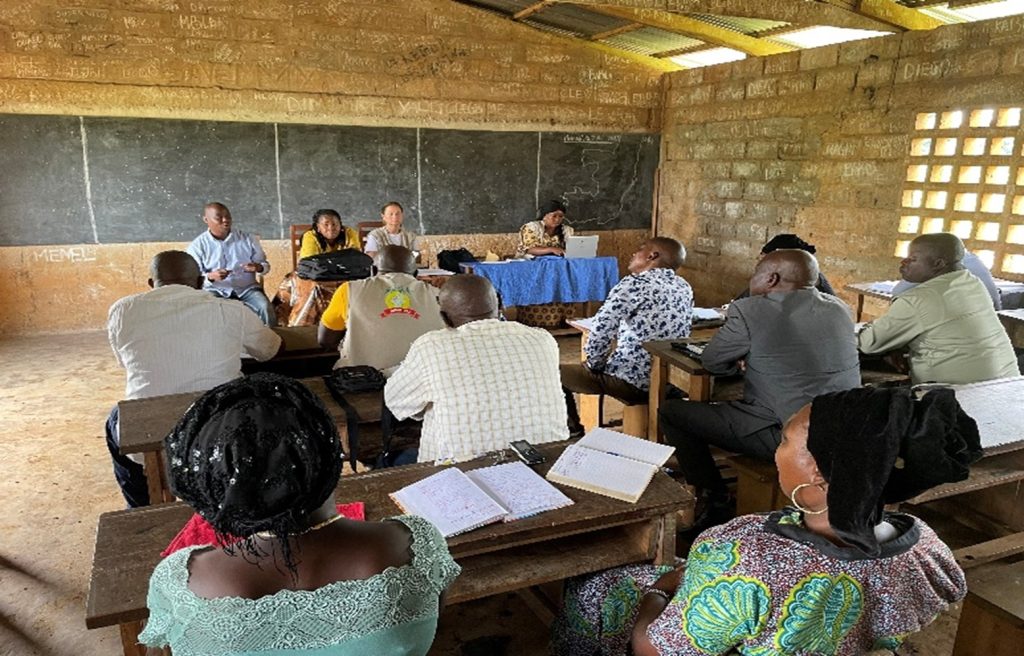
As part of the Seeds for Tomorrow project, a field monitoring mission was carried out from 13 to 16 May in the districts of Mindouli (Pool), Yamba, and Mouyondzi (Bouenza) in the Republic of Congo. The objective was to ensure the smooth implementation of the home-grown school feeding programme by reinforcing the links between local schools and agricultural cooperatives.
Eight schools and nine producer cooperatives are currently participating in this phase of the project in these districts. The mission assessed the supply processes, reviewed purchase records and delivery reports, and identified challenges faced by the stakeholders. Particular attention was given to the prices, quality, and management of the food products delivered for school meals.
A protocol on the price, quality, and quantity of local agricultural products was shared with all stakeholders in the three districts in both departments. Prices were agreed upon jointly by the schools and the producers, promoting a fair and inclusive approach.
Key representatives took part in the mission, including Dr. Pitchou Prudence Adzona Banga-Mboko, Director General of Basic Education at the Ministry of Education (MEPPSA); Mr. Christian Nieme, Director of Production at the Ministry of Agriculture (MAEP); Nadia Goodman, WFP Project Coordinator; and Brunelle Seholo, Head of Field Operations at WFP. School personnels, agricultural producers, and government officials came together to analyze the challenges and propose practical solutions to enhance the success of the programme.

Meeting in Mouyondzi with members of MEPPSA, MAEP, schools and cooperatives part of the project. WFP/M. Bapteme NGAMBOU
As an immediate outcome, project participants pointed to their initial access to local markets, which emerged as a direct result of the first implemented actions by the project. According to Malanda Daven, president of the “Grâce à l’Éternel” cooperative in Kimpombo, located in the Yamba district of Bouenza department, WFP created new business opportunities for them. “Thanks to the WFP project, this has enabled us to obtain a market elsewhere, the Dangoté cement company, which we have started to supply”, he stated.
Additionally, Ms. Bongamboko, Director General of Basic Education at the Ministry of Preschool, Primary, Secondary Education, and Literacy, emphasized the impact on education. “It’s a way to attract children to school by providing them with school meals. This also increases school attendance rates.”
Through this cross-sector collaboration, Seeds for Tomorrow continues to strengthen the foundation of a sustainable homegrown school feeding model that supports both quality education and local development.
About the project
The Seeds for Tomorrow project is an initiative of the World Food Programme (WFP) Centre of Excellence against Hunger in Brazil, in partnership with the Government of the Republic of Congo, the Government of Brazil, the WFP Republic of Congo and the United Nations Office for South-South Cooperation (UNOSSC) and financed by the IBSA fund (India, Brazil and South Africa Facility for Poverty and Hunger Alleviation).




